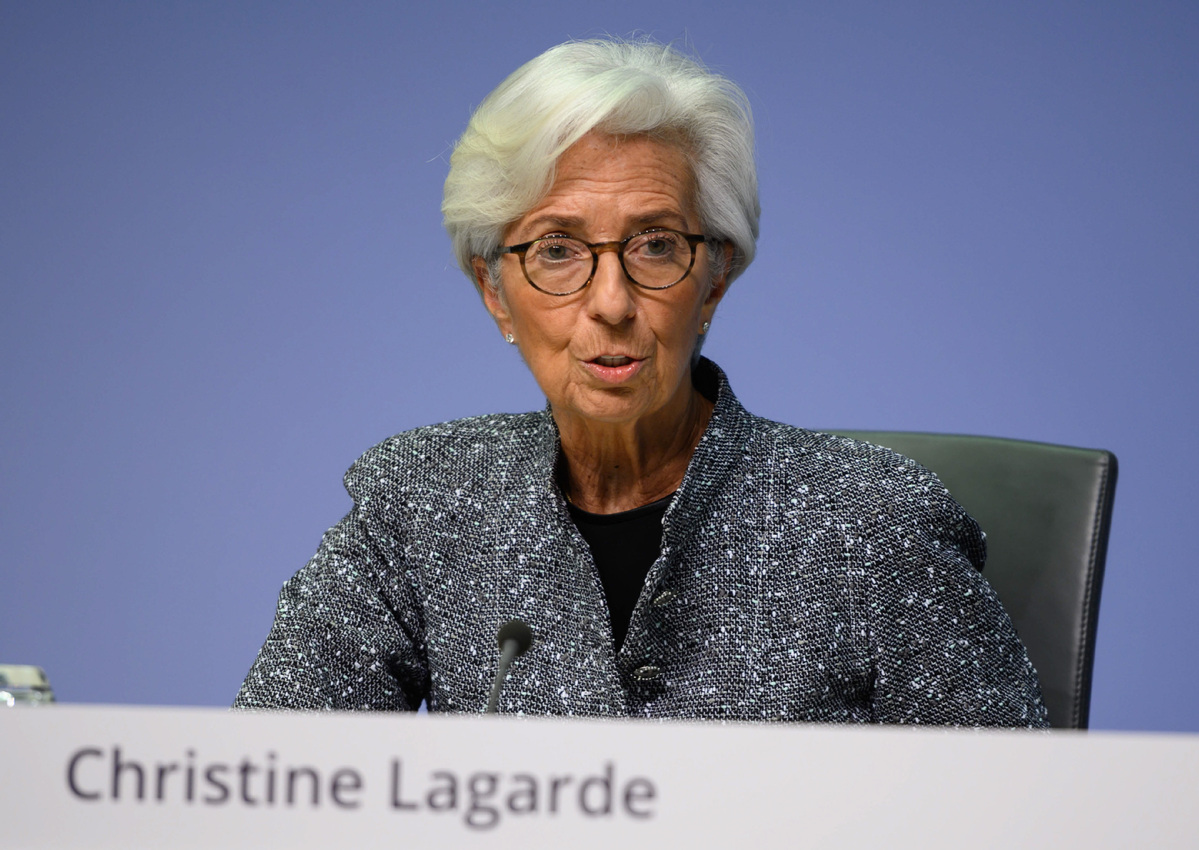ECB refrains from rate cut, steps up liquidity measures amid COVID-19 concerns
Xinhua | Updated: 2020-03-13 08:40

FRANKFURT - The European Central Bank (ECB) on Thursday decided to leave key interest rates unchanged but rolled out a comprehensive package of monetary policy measures to ensure liquidity support amid COVID-19 concerns.
The stimulus package includes additional longer-term repo operations, known as LTROs, to provide immediate liquidity support to the euro area financial system, according to a statement released by the ECB.
More favorable terms will be applied to the targeted longer-term refinancing operations, or TLTRO III, to support bank lending to those affected most by the spread of the coronavirus, in particular small and medium-sized enterprises, the central bank said.
A temporary envelope of additional net asset purchases of 120 billion euros (135 billion U.S. dollars) will be added until the end of the year, ensuring a strong contribution from the private sector, the ECB said, which will, along with the existing asset purchase program, "support favorable financing conditions for the real economy in times of heightened uncertainty."
The eurozone base interest rate will remain at 0.00 percent, with the marginal lending rate and deposit rate remaining at 0.25 percent and minus 0.50 percent, respectively, the ECB said, missing market expectation about a rate cut following U.S. Fed and Bank of England.
COVID-19 "A MAJOR SHOCK"
The spread of the coronavirus "has been a major shock to the growth prospects of the global and euro area economies and has heightened market volatility," ECB President Christine Lagarde told a press conference on Thursday.
In a macro-economic analysis, Lagarde said that the risks surrounding the euro area growth outlook are "clearly on the downside." The spread of the coronavirus adds a new and substantial source of downside risk on top of risks related to geopolitical factors, rising protectionism and vulnerabilities in emerging markets, she said.
Governments and all other policy institutions are called upon to take timely and targeted actions to address the public health challenge and mitigate its economic impact, Lagarde said, stressing that "the response should be fiscal first and foremost."
"We regard the current shock as severe but temporary, if the right measures are taken by all the players," she noted.
The ECB welcomes the measures already taken by several governments to ensure sufficient health sector resources and to provide support to affected companies and employees, Lagarde said.
Immediately following the ECB announcement, German shares extended losses in the morning session, tumbling to a record low of 9308.15 points.
Although the absence of a rate cut has disappointed markets, Lagarde noted that "we are certainly not at the reversal rate, not at the lower bound," defending the decision to hold rates and dismissing worries over ECB's too limited policy space.
She said the new policy package was a unanimous decision among the Governing Council members, which is "the most efficient, the best targeted, most focused set of tools" to address the current risks.
Also on Thursday, the ECB's Supervisory Board, the banking watchdog of the European Union (EU), said it will provide temporary capital and operational relief, including Pillar 2 Guidance, in response to the coronavirus shock, and will delay this year's banks stress test until 2021.
GOVERNMENT ACTION IN FOCUS
The ECB has turned on the money tap and taken risks, said Stefan Kooths, an economist with German research institute IfW Kiel. Securing banks against credit risks would be a task for states, not monetary policy, he said.
Kooths, however, backed the ECB's decision to hold rates, saying that an even lower negative interest rates would have made liquidity maintenance for banks and companies even more expensive.
"Despite these actions by the ECB, a return of market confidence requires a proper coordinated action plan from senior EU leadership, including member states governments," Erik Meyersson, an economist from Handelsbanken, a Swedish bank, commented.
The call for more action from the government side was echoed in a report published Wednesday by a group of seven leading German economists, who urged the German government to deviate from the "black zero" budget principle and to use the leeway offered by the debt brake.
Germany's governing parties of the conservative union CDU/CSU and the Social Democratic Party announced on Monday that they will increase public expenditure of 12.4 billion euros until 2024 to offer liquidity support to affected German companies.
Meanwhile, Italy, EU's third-largest economy and the hardest-hit member state by COVID-19, has taken some drastic moves. The government said Wednesday that it has earmarked up to 25 billion euros to mitigate the economic impact of the coronavirus.
On the EU level, the European Commission made a decision on late Tuesday to launch a 25 billion-euro initiative, aiming at helping the bloc to weather COVID-19 shocks. As a first step, the Commission proposed to release 7.5 billion euros of investment liquidity in the coming weeks.
























